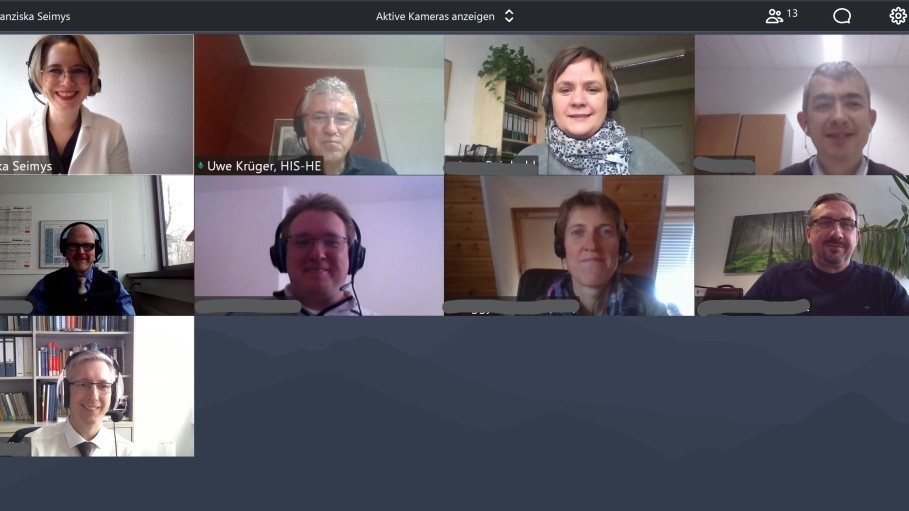New impetus for teaching: the mechanical engineering course is getting fit for the EU's "Green Deal" strategy with an external perspective.

Our Faculty of Mechanical Engineering is participating with its Bachelor's degree courses in Mechanical Engineering and KIA Mechanical Engineering in the Maschinenhaus project of the German Engineering Federation (VDMA) e.V. The aim of the transfer project is to improve the quality of studies through the external perspective. The first of a total of four workshops was held recently.
"In order for the German mechanical and plant engineering industry to maintain its leading international position, we not only need excellent research, but also excellent teaching," emphasizes VDMA education officer, Dr. Franziska Šeimys. In order to further develop local teaching, the VDMA, together with its partner HIS-Institut für Hochschulentwicklung e.V. and the Zittau/Görlitz University of Applied Sciences, wants to analyze the status quo of teaching, jointly develop goals and work out concrete improvement measures.the great challenges of our time require well-trained engineers.
"Mechanical engineering is the innovation driver of the economy. The EU has set itself ambitious goals with the Green Deal strategy and the associated circular economy. To achieve this, we need creative engineers with modern training," emphasizes the Dean of the Faculty of Mechanical Engineering at Zittau/Görlitz University of Applied Sciences, Prof. Dr.-Ing.
”The mechanical and plant engineering industry is undergoing a period of technological upheaval: Industry 4.0 is changing business models, bringing about new innovations and requiring companies, their products and their production to adapt. This calls for highly qualified employees with new knowledge and skills. This also requires curricula to be adapted. An external perspective should help here: "By participating in the Maschinenhaus transfer project, we want to evaluateour mechanical engineering course and use the project team's experience to integrate new approaches," explains Prof. Bellair. "The aim of the Maschinenhaus transfer project is to contribute to giving prospective students the certainty that they can complete a high-quality mechanical engineering degree with excellent career prospects ."
Uwe Krüger, consultant at HIS-HE, has been supporting universities for many years in the further development of teaching quality as part of the Maschinenhaus initiative. He is confident that the tried and tested approach will provide the faculty with helpful impetus: " In transfer projects, we often see how difficult it is for first-year students in mechanical engineering to find their way into committed learning and active action. With our discussion rounds, we support the course in further developing existing courses and measures, but also in getting to know new approaches. In doing so, we are drawing on many years of experience from which mechanical engineering at the Zittau/Görlitz University of Applied Sciences will benefit."
The cooperation with the Zittau/Görlitz University of Applied Sciences is the 61st transfer project that the VDMA has initiated nationwide since 2013. All participating universities are awarded the "Machine House Certificate of Participation" at the end of the project and are thus included in the circle of transfer universities - and Zittau/Görlitz University of Applied Sciences will soon be one of them.
With the Maschinenhaus initiative, the VDMA has been supporting faculties and departments of mechanical engineering, electrical engineering and computer science in the further development of teaching and the achievement of greater academic success since 2013. The Maschinenhaus sees itself as a "platform for innovative teaching" that connects stakeholders from universities, politics and companies. The aim is to counteract the high drop-out rates in engineering degree courses and ensure high-quality engineering studies.
In currently 60 ongoing or already completed transfer projects throughout Germany, theory is put into practice and the status quo of teaching is analyzed and new measures designed in individual workshops.
Further information on the Maschinenhaus initiative and current events can be found at https://bildung.vdma.org/hochschule.